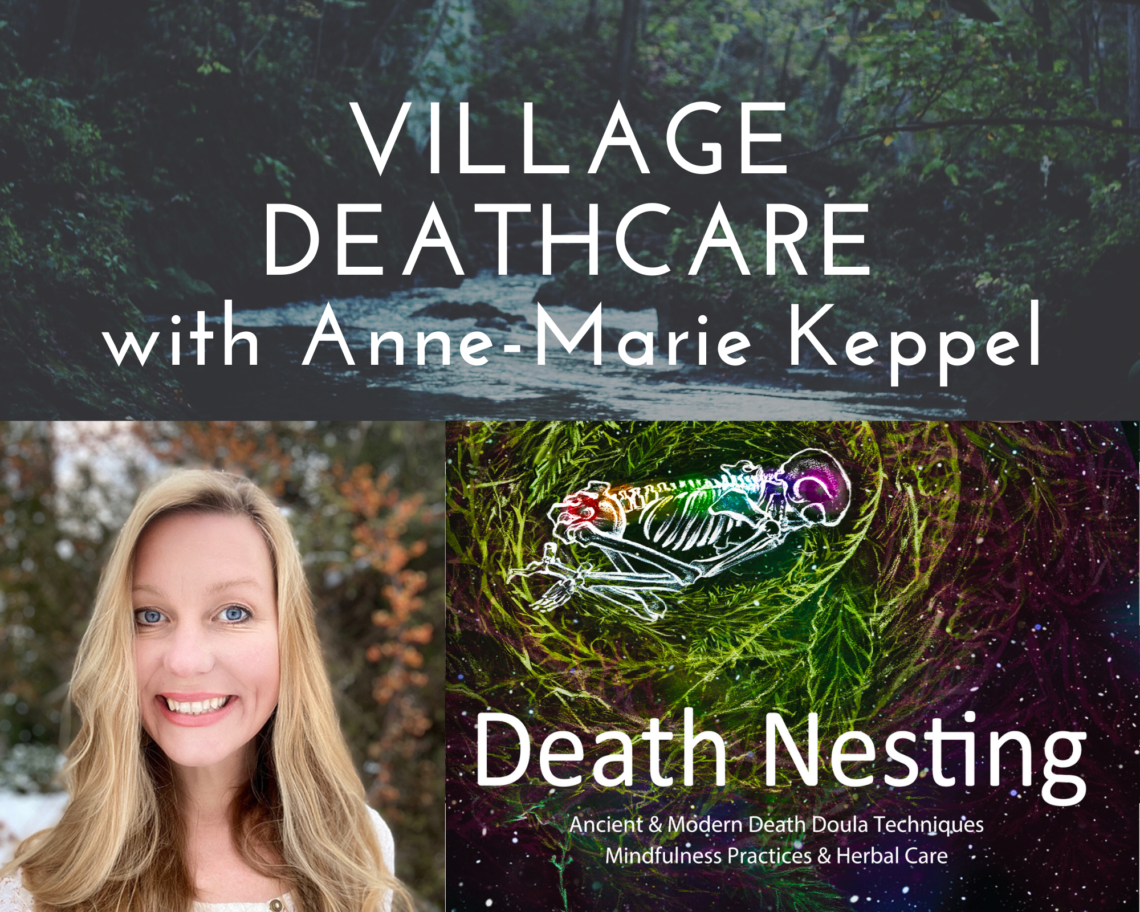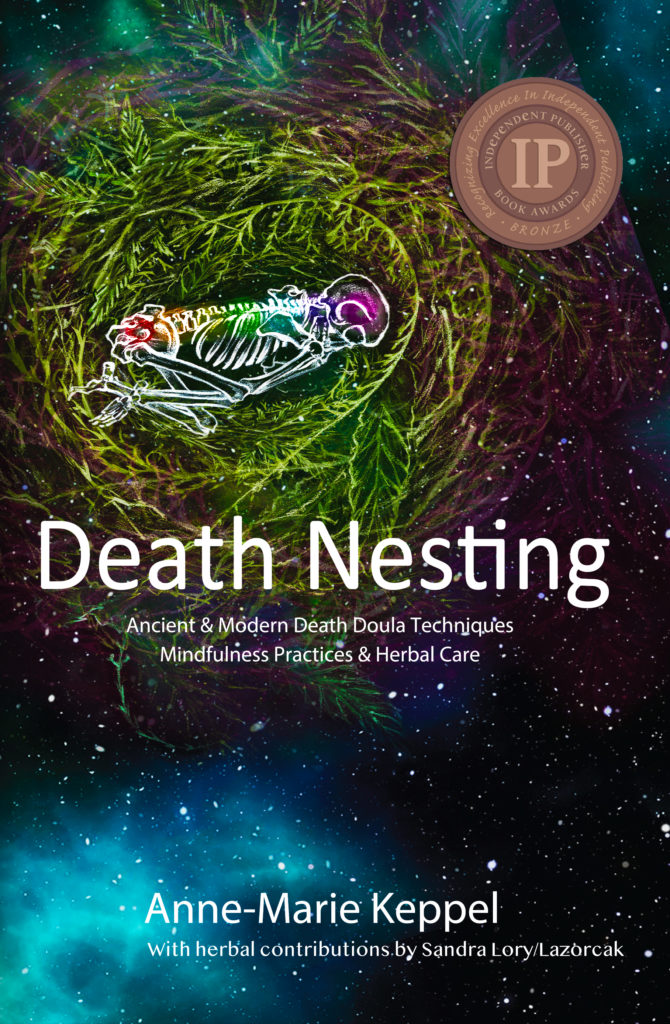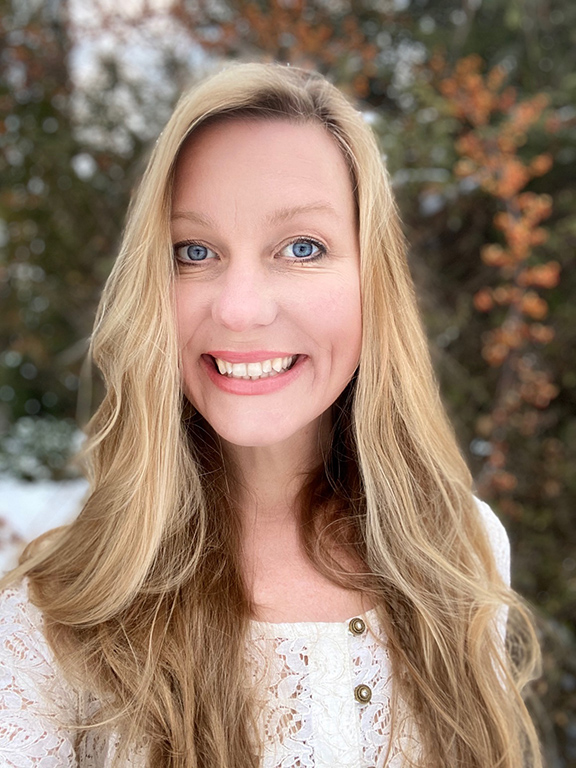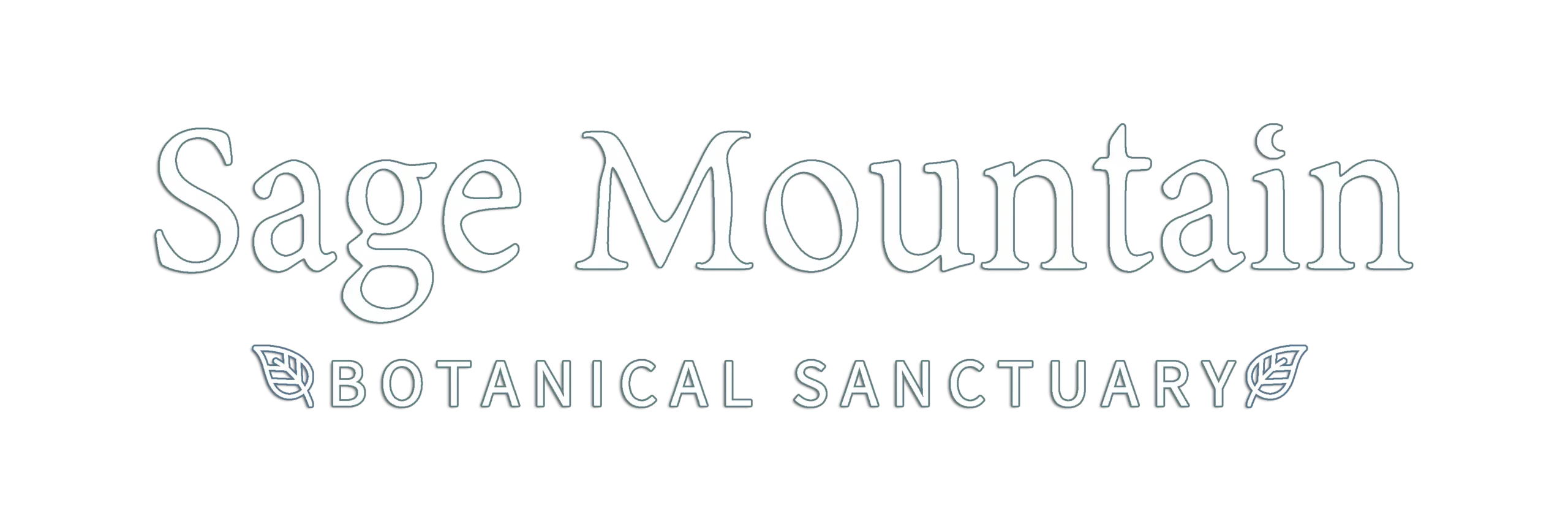
Caring for our Community: Village Deathcare with Anne-Marie Keppel
In an era where our so many of our elders are reaching their end of life, and where we are touched by an immense loss of life across the country due to COVID-19 and indirect influences such as mental health and addiction, the more we can enhance our aware awareness of death, the deeper sacredness we can infuse into our waking life.
In early 2021, I had the privilege to take a Village Deathcare course with Anne-Marie Keppel, a death doula and author of the book Death Nesting. After years of Hospice training and end of life courses, Anne-Marie’s program took me deeper into the soul and essence of this work while situating the curriculum in a context of current events including the COVID-19 pandemic and addressing white supremacy and colonization of our society and of the death doula industry squarely and honestly.
I had the chance to ask Anne-Marie about her work, and am honored to share her reflections in the interview below. Whether a student of our End of Life Herbal Care curriculum, a Hospice volunteer, a death doula, or someone simply interested in learning more about compassionate end of life care among communities, I highly recommend Anne-Marie’s book Death Nesting, her book for youth Death of Faefolk, and her training program, Village Deathcare Citizen Course. Her next cohort will begin in May, and more information on her course and her books is available at her website, www.stardustmeadow.com.
~ Emily Ruff .
What got you into the work of Deathcare?
My first influence and modeling of eldercare happened in my own home when my grandfather came to live with us. He had Alzheimer’s and my parents and older sisters cared for him until we could no longer stay sane and run the household while doing so. He originally came to live with us after a residential care facility in New York took such poor care of him that his jewelry was stolen. I remember this so clearly as it was the first time in my family there had been such a big deal made out of theft. I was about eight years old at the time and I remember asking why grandpa didn’t stop the thief. It was a first lesson in adult vulnerability- it wasn’t just kids that couldn’t protect themselves. After my grandfather died I continued to volunteer at our local nursing home and I continued until I graduated from high school. I didn’t pick up eldercare again until I was in my early 30’s when I fell in love with and cared for an elderly homeless man. My path has been very clear since then.
Why is this work important in the era of Covid?
This work has always, and will always be important. Covid has only brought discussions of our mortality to front-page news. Loneliness and isolation are nothing new for the elderly, terminally ill, differently abled or imprisoned. I recently read an article of how a year without hugs affects our mental health. The article is certainly directed toward well-bodied, social individuals who are missing intimacy. I do not wish to minimize the degree of sorrow that many individuals have suffered during this pandemic. Only to say that, they are not alone. We are never alone in our grief. We are not alone in our fear of dying or death.

What do you mean by the term Death Nesting?
Death Nesting is the nest we prepare and the tasks we take on when preparing one for death. And, simultaneously, when we help someone else die, we are learning how we one day might experience death ourselves. We also are Death Nesting every day of our healthy lives. How we live, where we live, who we associate with, these will all play a role in our dying and death. There are some things we have very little control over or we are at the mercy of a particular system such economic status, health care, and if we never married and have no children. Other things will come in to play regarding race or gender discrimination and if you are able to receive the kind of gentle, loving, respectful care that every living being deserves. Somethings we have total control over such as our mind and how we are able to work with our circumstances. That said, some individuals have never had the opportunity to work with or understand their minds- they live on autopilot in a world that is unforgivingly centered on productivity. The very best way to do Death Nesting and the very best guarantee for having a peaceful death is self-love. When you have a deep self-love it is in untouchable place and your external circumstances won’t be your main focus.
Who is the book Death Nesting written for?
This is a good question. To have time to “wrap up business” and consider what kind of music and essential oils you may wish to have is a manner of death most on our planet will not have- so in that way what is described is quite privileged. But, it is also very practical and talks about ways to serve those to whom death comes quickly in an ICU. Much of it can be applied to deaths everywhere—there is always something you can do to help when you are creative and have thought about how to be helpful in advance. The book gives suggestions for ways to help physically, emotionally, spiritually, and with herbal care to feel like you are doing something when everything feels out of control. And, at every turn it reminds you that you may be caring for someone who is dying now, but you will have your own turn at this one day. The book is written for anyone who wishes to learn another perspective on dying and death and understands that mindfulness is essential to staying grounded and not experiencing “burn out.” There are so many good books out there!
What I love about your book is that it provides practical tools for end of life care, but is balanced with a deep support for the emotional process through mindfulness. Why did you find it important to weave these two approaches together?
They cannot be separated! Caring for the dying is work; real gritty, heavy, stinky, messy work. Without self-care, without physical support, without a sense of humor you will sink. Without mindfulness you might forget who you are and what you love, you might forget to look at the clouds and taste your food. You might forget that you are the one who is fully living and instead think you are in the process of actively dying.
Your latest book, The Death of Faefolk, was released with impeccable timing. Were you working on this book before Coronavirus?
The Death of Faefolk was already about the isolation of the elderly and how we need to reconnect our generations through deathcare. I was nearly done with the book when the Coronavirus reared it’s head. I simply added a few sentences and voilà. Death Nesting was released in November 2019 and within a couple of months along came Covid. I believe this is what made the book win a bronze medal in the world’s largest independent publisher awards. The timing for both books was quite something! The sequel to The Death of Faefolk will be released in May 2021. It continues the deathcare adventures of the five youth and involves a trip to Vermont.
What do you hope people take from your books?
I have two new books coming out this year so I hope they are helping folks out there! I receive really lovely feedback that is so humbling. My greatest hope is that readers live a more rich and loving life themselves and that then ripples out into their communities and from there improves the world condition. But I’ll settle for the understanding that deathcare can be learned by everyone; that it’s not lowly work and it’s not elite work, it is simply a part of life.

Anne-Marie Keppel draws from her work as a death doula, nurse assistant, meditation instructor, Reiki Master Teacher, professional event coordinator and teacher of children and teens. She is a published author, Life-Cycle Funeral Celebrant, Feeding Your Demons facilitator, and leads a nine week course for death doulas in community deathcare. She is a mother of three and lives in the Northeast Kindgom of Vermont where she practices magic, community deathcare, trains her Siberian Husky and delights in her family’s love. More information at annemariekeppel.com and stardustmeadow.com.
